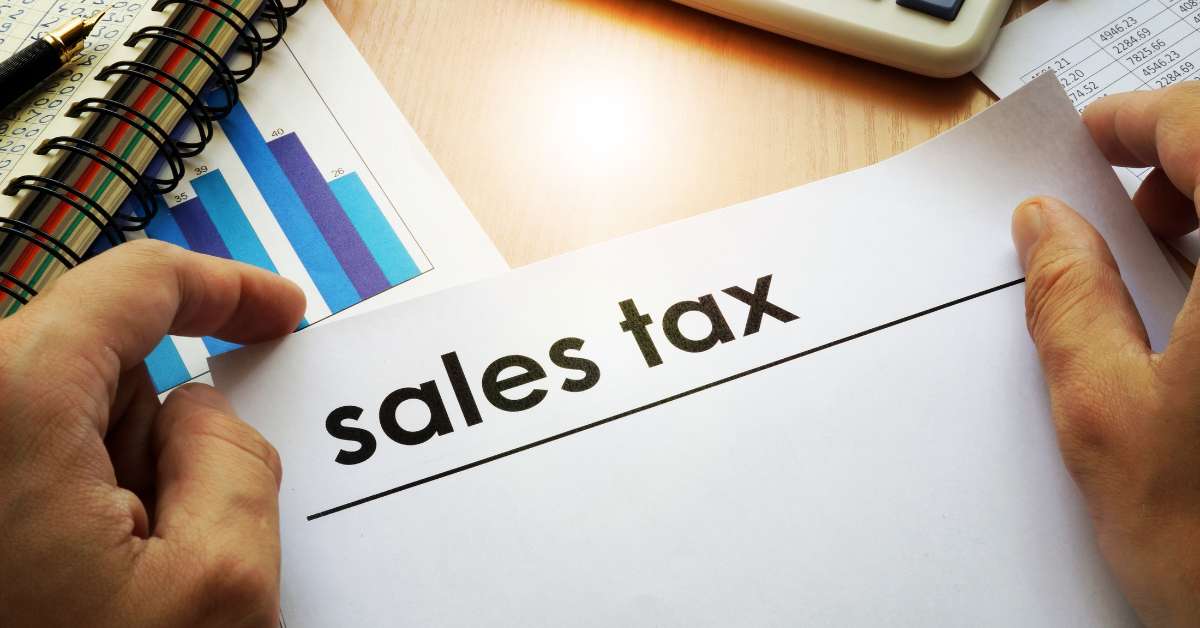Understanding Virginia's sales tax is essential for business owners, whether you operate a physical storefront or sell products online. Compliance with state and local tax regulations is critical to avoiding potential penalties and ensuring the smooth operation of your business. Familiarizing yourself with Virginia's specific tax requirements will help you navigate the complexities associated with tax obligations in the state.
This guide provides comprehensive information about Virginia sales tax, including registration procedures, available exemptions, and filing requirements. Whether you're a new business owner or looking to update your knowledge, staying informed about the latest tax rules in Virginia will aid in maintaining compliance and financial health for your operations.

What Is Taxable in Virginia?
In Virginia, most tangible personal property is subject to sales tax. However, some items are exempt, such as prescription drugs, certain groceries, specific agricultural products, and certain medical supplies.
If your business sells taxable goods or services, you need to collect and remit sales tax appropriately. Additionally, businesses must be aware of use taxes that might apply when purchasing goods out of state.
Who Needs to Collect Sales Tax?
The following businesses need to collect sales tax in Virginia:
- Retailers with a physical presence in Virginia
- Online sellers meeting the state’s economic nexus threshold
- Service providers depending on the nature of the service
Virginia establishes an economic nexus threshold of $100,000 in sales or 200 transactions per year. Businesses that exceed this limit must register and begin collecting sales tax, regardless of a physical presence in Virginia. Failure to comply may result in penalties and back taxes, making doola’s Bookkeeping service invaluable for navigating these regulations smoothly.
How to Register for a Sales Tax Permit in Virginia
Registering for a sales tax permit in Virginia involves these steps:
- Prepare necessary details, including your EIN, business license, and store information.
- Access the Virginia Department of Taxation website.
- Complete the online application form.
- Receive your Virginia Sales Tax Certificate and commence tax collection.
Operating without a sales tax permit is illegal, so ensure you register before conducting taxable sales. You can reach out to doola’s bookkeeping experts for assistance in managing registration procedures efficiently.
How to Calculate Sales Tax in Virginia
Follow these steps to calculate sales tax accurately:
Step 1:
Identify the correct sales tax rate applicable for your and your customer’s location.
Step 2:
Collect the corresponding sales tax at the time of sale.
Step 3:
Maintain detailed records of all tax-related transactions.
Virginia requires businesses to file sales tax returns either monthly, quarterly, or annually based on the volume of sales. Ensure you check filing deadlines to avoid fines.
Note that some localities have additional sales taxes that must be considered when calculating the total rate owed.
Common Sales Tax Exemptions in Virginia
Certain entities and purchases can qualify for sales tax exemptions, which include:
- Purchases for resale (requires a resale certificate)
- Sales to accredited nonprofit organizations
- Specific manufacturing and agricultural equipment
Claiming an exemption requires the proper use of exemption certificates, and businesses should maintain accurate records to avoid audits and penalties.
Remote Seller and Marketplace Sales Tax Rules in Virginia
Virginia enacts specific rules for remote sellers and marketplace facilitators like Amazon, Etsy, and eBay.
The economic nexus threshold within Virginia stands at $100,000 in sales or 200 transactions, compelling sellers who exceed these thresholds to align with state sales tax obligations.
Virginia may require that these sellers join a Simplified Sellers Use Tax (SSUT) program, offering a uniform tax rate to facilitate compliance across diverse localities.
What Triggers a Sales Tax Audit
The Virginia Department of Taxation may conduct audits for things like missed or incorrect sales tax returns, late remittances of taxes, disproportionate sales reporting, or misuse of exemption certificates.
Businesses can lower audit risk by keeping precise records of sales transactions, exemptions, and tax documentation. Conduct regular internal audits to confirm filing accuracy.
FAQs About Sales Tax in Virginia
Here are some typical questions concerning Virginia’s sales tax:
Does Virginia tax digital goods?
Yes, certain digital goods are taxable in Virginia, but exceptions exist. Always confirm with state guidelines.
Do out-of-state businesses need to collect Virginia sales tax?
If you surpass the $100,000 sales or 200-transaction threshold, then yes, you’ll need to comply.
What if I overcharge or undercharge sales tax?
You may need to issue refunds or remit extra amounts to the state. Carefully maintaining records can help avoid such issues.
Are services taxable in Virginia?
While most services are not covered by sales tax, keeping abreast of exceptions is important for compliance.
Stay Compliant With doola
Achieving sales tax compliance does not need to be burdensome. Keeping informed and utilizing suitable tools can prevent penalties and encourage smooth business operations.
doola offers comprehensive guidance and solutions to assist you, focusing on finance management, tax compliance, and bookkeeping support.




